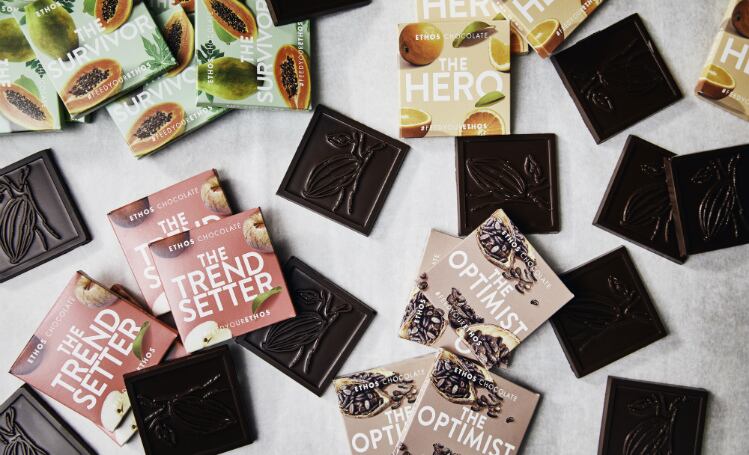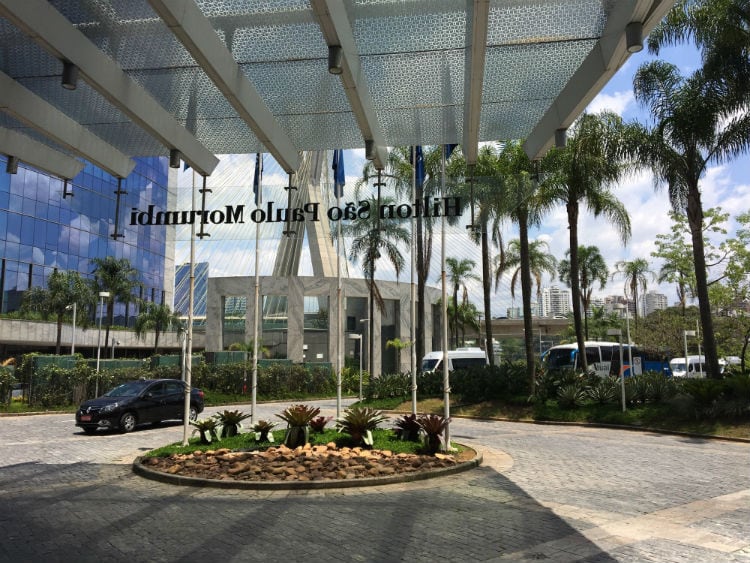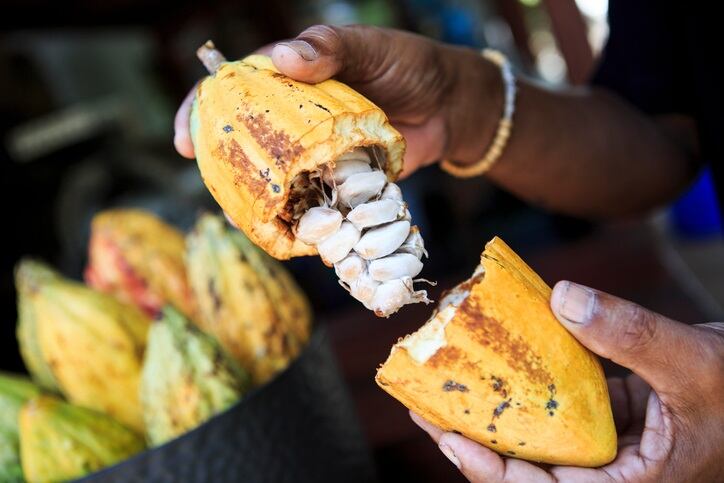Launched on February 5, the four varieties represent a fruit that GMO farming has already saved, improved or could protect in the near future. SPAGnVOLA, a single-estate chocolatier with cocoa fields in the Dominican Republic, produced Ethos at its Gaithersburg, Maryland facility.
Ethos has provided thousands of free chocolate bars to consumers through its website, which opened up daily through February 14 with limited availability.
The response has been ‘overwhelmingly positive,’ said Rebecca Larson, lead scientist at A Fresh Look and a plant scientist by trade, so much so that the team is already brainstorming how to keep the brand alive after this initial awareness campaign.
Funded by industry groups including Betaseed, Amalgamated Sugar, The Western Sugar Cooperative and several sugar beet alliances, A Fresh Look formed about two years ago to dispel myths of GMO farming, connecting consumers directly with farmers – “the OGs of environmentalists,’ as Larson calls them. (Participating groups’ boards voted to partake in the Ethos campaign.)
“A majority of Americans know GMOs, but their presence is overwhelmingly negative,” Larson told ConfectioneryNews. “Farmers voices are pretty small in the general population – less than 2% are actively involved in producing food. [A Fresh Look] allows for the farmers’ side of the story to be told and correct the record in a lot of misconceptions around the technology,” she said.
Pretty packaging with a loud and proud GMO proclamation
Many artisan chocolate brands tout their organic, Fairtrade, or non-GMO sources. Ethos promotes the opposite.
GMO in four acts
Ethos made one plain bar it calls ‘The Optimist’ to symbolise the potential genetic engineering holds for the future of the cacao industry. Another, ‘The Trendsetter,’ incorporates flavor from the non-browning GM apple recently approved by the FDA that proponents hope will combat food waste.
‘The Survivor’ features Hawaiian papaya, grown from a GM version that effectively rescued the fruit from decimation by ringspot virus in the 1990s. The GMO fruit accounted for more than 70% of the state’s papaya acreage in 2013.
Calling attention to citrus greening in Florida, where orange production declined 40% from 2002 to 2011 according to the USDA, ‘The Hero’ is laced with orange oil produced from genetically modified Florida oranges that could save a backbone of the state’s economy and culture.
“This IS a GMO,” Larson emphasized. “That word doesn’t have to be scary. It’s not some scary thing that’s been included in your food,” noting that GM foods revolve more around the farming process – changing practices to produce food with fewer pesticides in a drier, more volatile climate.
Creative agency Powell Tate, which frequently works with government and nonprofits and has worked with A Fresh Look since 2016, handled the branding. Each package proclaims the GMO origins of the product within along with the hashtag #FeedYourEthos.
Asked why Ethos opted for GMO and not the US government’s recent adoption of the term ‘bio-engineered,’ Larson said it was about “meeting the consumer in the space where they live today.” In other words, consumers know what GMO means, but they might not understand the science behind it.
A recent study of 2,000 European and US adults revealed that 90% of consumers report some opposition to GMs, despite a scientific consensus about the safety of genetically modified (GM) foods. Notably, the stronger a person’s opposition to GM foods, the more informed they believe themselves to be despite low scores on an actual knowledge test, according to the University of Colorado, one of the study’s participating research centers.
While the cacao itself is not GM – no such commercial crops are on the market yet, said Larson, but they hold potential – Ethos uses sugar beets, where crops are now entirely GMO. Larson notes that GM beet sugar does not contain GMO traits, however, due to the refining process, which creates a sucrose nearly identical to refined cane sugar.
Cacao in danger
Rising temperatures, diminishing water supplies and destructive pests have harmed and deflated cacao trees. Africa grows about 70% of the world’s cocoa, and the effects of climate change will reduce the amount of land suitable for growing, according to researchers at the Innovative Genomics Insitute (IGI), a joint collaboration between the University of California at Berkeley and San Francisco.
Mars Global has funded the research, which will enlist CRISPR gene-editing technology, to the tune of $1bn.
In “co-opting the term back,” said Larson, Ethos Chocolate opens the door to “learn some lessons from [past] GMO misperceptions, to get out ahead of it.”
Climate change, disease and pest pressure, she added, will “change the face of cacao production dramatically.”
Studies:
Gene Technology for Papaya Ringspot Virus Disease Management
Authors: A.K. Azad MD, L. Amin, N. Marzuki Sidik
The Scientific World Journal, 2014, Id. 768038
dx.doi.org/10.1155/2014/768038
Extreme opponents of genetically modified foods know the least but think they know the most
Authors: P.M. Fernbach, N. Light, S.E. Scott, Y. Inbar, P. Rozin
Nature Human Behaviour, 2019
doi.org/10.1038/s41562-018-0520-3
Citrus
USDA, National Agricultural Statistics Service, Florida Field Office
nass.usda.gov/Statistics_by_State/Florida/Publications/Citrus/
Pests & Diseases
International Cocoa Organization




